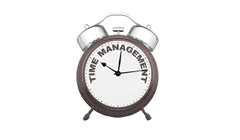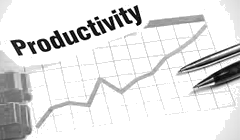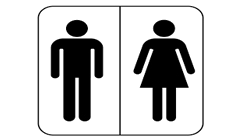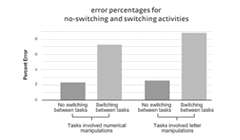BOOKLET
After the workshop or lecture, all participants will be given a booklet to take home so that they can look it over in their own time.
Booklet 'Multitasking is a myth'
The booklet, written by Wouter Hesseling, is a collection of information from numerous articles and books, experiences gained from many performances in various sectors and conversations with scientists from the UvA, VU and UU.

Send a mail to info@multitasken.com to ask for a free copy of the booklet 'Multitasking is a myth'.
Below, you will find information about the influence of multitasking on various subjects.

Timemanagement
Some top athletes combine their sport with an academic study. How do they do that. They have 24 hours in a day, just like everyone else, don’t they?
Do everything you do with 100% attention.
One thing at the time (monotasking) is by far the most efficient.
If you want to go monotasking, create a priority list first and start the day with the most important task.
Do not be distracted. Make time for a concentration mind dump (write down what's currently in your mind) allowing distracting thoughts to pop up. If you suddenly have really good ideas, write them down in a book next to you.
Create templates and learn the keyboard shortcuts. In this way, you do not lose time and energy on all kinds of edge issues.
Try to see organizing and planning properly as an important part of your work. Start each new project in this way to avoid falling behind.
The Pareto rule: 20 percent of the work consume 80 percent of the time and resources.

Sleep and rest
If you study or work on a report, you use your ‘reflective brain’. This part of your brain tires very rapidly and needs a lot of rest.
Someone who who had enough rest has a much more active reflective brain (analytical, solution-oriented, creative) and is less likely to fall back on the reflex brain (reacting reflexively to stimuli). In addition, rest and sleep ensure that what you have learned (reflective brain) is stored in the archiving brain. The reflective brain works like a whiteboard: if you learn too long, the first things will be wiped off..
Two lumberjacks work a whole day. One works non stop and the other takes a break every two hour. The lumberjack who took breaks had cut down more trees. How is that possible?: During the breaks, he sharpened his ax.
Take a break on time is essential.
Do not underestimate the function of a good night's sleep.

Hyperconnectivity
How often do you check your phone for messages, e-mails, news and notifications?
According to recent studies, the average person in the USA checks his or her telephone 250 times a day. There are several reasons why people do this. There is a natural urge to be connected to other people. Each check gives peace and a temporary mood boost. The person also gets a shot of dopamine which ensures that you grab your phone again and again.
In a scientific study in Finland where attention and focus were measured, the participants scored significantly lower when they had a phone next to them. Remarkably enough, it did not matter much whether the phone was at vibrate mode or actually answered.
ICT can help us but can obstruct us. In this age of hyperconnectivity, telephones and computers has to be used sensibly. If you want to focus, put the phone away and turn off Social Media on your computer.
Create a social media moment before a meeting or lesson.

Productivity
People who are very busy and do different things at the same time produce less.
Research of the Harvard Business Review has shown that people who try to multitask are 40% less productive, so they need 40% more time to achieve the same!
Monotasking provides a better focus and you will achieve more. In general it provides more peace and that ultimately benefits the working atmosphere.
Provide a pleasant environment, the right temperature, a nice chair, computer screen at eye level. Go for a 100% focus..
Turn off your mail or smartphone. Take a good breath and if you suddenly have really good ideas, write them down in a booklet that you have lying next to you.
Work in blocks and take a break on time.
It is easy to fall back into old patterns. Keep going and do not be discouraged.

The old days versus modern times
Why do people multitask so often these days?
Due to the development of ICT, computers have often taken over the routine jobs. The remaining work is brain work. Two brain tasks that both need attention at the same time is not possible.
People are constantly online due to the presence of smartphones and social media.
Since the 1960s, most companies have been working with office-gardens. (Large open spaces instead of everyone his own room).
People try to combine household work and ‘real’ work. People therefore have more tasks on a daily basis.
People are more and more evaluated on the basis of results. This makes them feel that they have to prove themselves more and take (too) much on their plates.
We live in a 'control society'. Everyone knows what everyone is doing. Having everything under control ensures that a large part of the brain is constantly occupied.
Since 1950 we have been talking 50% faster, we sleep for half an hour less, we walk 10% faster and we are available 24/7.

Women versus men
Are women better in multitasking?
Various research results can be found on the internet.
In 2010 someone wrote that women can multitask better, in 2011 a study was published that showed that men are better at it. But most studies show that both men and women can not multitask.
For ages women’s work did not need a lot of brain activity (cleaning and foldiing clothes for example). In addition they could perform an extra task.
Apart from this discussion, everyone, man or woman, young or old, will significantly limit their own productivity through multitasking. Everyone pays a price for multitasking!
It is well known that these days, young women run the greatest risk of burnout.
More often than men, they feel inadequate and try to compensate for this feeling with extra hard work.
They are also on average more collegial and want to please the people around them.
These are two important factors that encourage over-active multitasking and thus cause more burn-out.
People who say they can multitask well, usually are not able to focus at one thing at the time.

Science
What does science say about multitasking?
Leeds University: We make two to three times more errors when switching from work to the phone and back again.
University of California: If you're distracted, it costs at least 5 minutes before you can focus 100% on your task again.
The University of London: Your IQ scores 10 points lower if you do something else during an intelligence test. This is as much as if you were to spend the night without sleeping or smoking a joint.
The London School of Economics: Grades in schools in four different English cities increased by 6% when phones were banned from the classroom.
The University of Utah: Two percent of people are 'super taskers'. That means they experience (to a certain height) little efficiency loss when they are multitasking.
The University of Utah: The most fanatic multitaskers are the slowest switchers. And those who often do only one thing at a time can, if they need it, quickly switch. Compare it to a computer: it's getting slower if you're constantly using it. Sometimes you have to clean it up so that it can switch between programs quickly.
Stanford University: Fanatic multitaskers are distracted much faster than people who concentrate more often on one thing at a time. They also say that everyone can train themselves to monotask.
The University of Chicago: When multitasking, we are all behaving like people with ADHD.
The Aalto University: The brain gets a shot of dopamine, every time you check your phone. This gives a 'reward loop', which means that you will want to check your phone again for new messages all the time.
The Baylor University: There is something like FOMO: the Fear Of Missing Out. If people are not constantly on their phone, fear can arise that you are missing something important or fun.

Relationships
You call a customer and a colleague distracts you. The last 10 seconds of what the customer said will escape your attention.
It is impossible to pay attention to a person at the same time and to be actively involved in work.
Many parents also work from home. If your child comes home from school and wants to tell you what happened that day, it may be difficult for you to put down their work. If you leave the laptop open and listen to the story, work will also demand your attention. Ultimately, you do not hear everything your child is telling you and you will make mistakes in your work document. Your child asks for attention but the work does too. Your attention is being pulled apart and research has shown that this can cause stress.
Of course, this also applies to other situations. Explaining to a colleague where the printer manual is located while talking on the phone to a customer is not really customer-friendly.
If you communicate with someone and you are doing something else at the same moment, you give the impression that he or she is not worth your full attention.
Switchtasking can cause relationship damage.
Close your computer and be careful with your customer, child or other relation, or make
clear you finish your work first and then be completely there for him or her.
Be clear to the people around you.
Creativity
We live in a knowledge-based economy, where every company is depending on employees to think outside of the box. Innovation is very important. For this you need the prefrontal cortex. This part of the brain can only do one thing at once. Renewal and creativity starts in empty moments. Business psychologist Tony Crabbe says:
Dare to do nothing!
According to the University of Illinois, Multitasking hampers creativity.
If you want to be productive, you have to empty your head every now and then. And multitasking is the enemy of an empty head.
Take a walk, play sports, listen to music or stare out of the window.
Einstein went every day for a two hour walk in the park and came up with ideas. Bill Clinton cleared his mind by golfing, and for Nietzsche the insights came to him while taking a bath.
If you do not empty your head regularly, it will affect your ability to think creatively and innovatively.
School and study
Most of the students try to multitask throughout the day and are constantly online. That’s a shame, because this way they sell themselves and others short.
The new generation are better multitaskers? It’s a myth!
Scientific research at Stanford University shows that students who have the phone next to them perform less: homework seems a lot harder than it really is.
A CcaM study shows that adolescents who are active social media users, often have more problems with executive functions, such as attention, inhibition of undesirable behavior and work planning. This can lead to problems with school performance and social skills. Students also forget how to concentrate properly by being online all the time.
Make students aware of the consequences of switchtasking.
Create a social media break.





